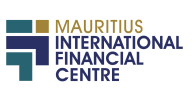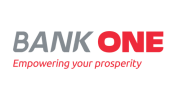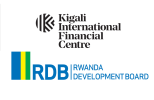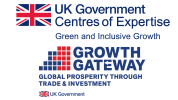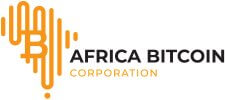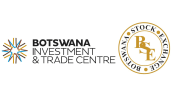Overview of Foreign Investment in Algeria
Algeria, a country strategically positioned in Africa and the Mediterranean, holds immense potential for foreign investment. Its rich natural resources and large consumer market make it an attractive destination for investors.

However, understanding the dynamics of foreign investment in Algeria is crucial. This includes the market potential, economic development opportunities, and the legal framework governing investments.
In this article, we delve into the current state of foreign investment in Algeria. We explore the key sectors identified for investment, government initiatives to attract foreign capital, and the impact of recent laws on the business environment.
We also shed light on the challenges faced by foreign investors and the measures taken to overcome them. Whether you’re a potential investor, a business strategist, or a policy maker, this comprehensive overview will provide valuable insights into Algeria’s investment landscape.
Stay with us as we navigate through the intricacies of foreign investment in Algeria.
Algeria’s Strategic Economic Position
Algeria’s strategic location, bridging Africa and Europe, offers unique advantages. It serves as a gateway for businesses looking to tap into both markets.
The country’s economy is the fourth largest in Africa. It is heavily reliant on hydrocarbons, which account for a significant portion of its GDP and export earnings.
However, Algeria is not just about oil and gas. The government is keen on diversifying the economy. This opens up opportunities in sectors like renewable energy, agriculture, tourism, and ICT.
With a population of over 40 million and a growing middle class, the market potential in Algeria is significant.
The Role of Hydrocarbons and Diversification Efforts
Hydrocarbons, mainly oil and gas, are the backbone of Algeria’s economy. They account for a large chunk of the country’s revenue and foreign exchange earnings.
However, the over-reliance on hydrocarbons poses economic risks. Fluctuations in global oil prices can significantly impact Algeria’s economic stability.
Recognizing this, the Algerian government has embarked on economic diversification efforts. The aim is to reduce dependence on hydrocarbons and create a more balanced and resilient economy.
Sectors such as renewable energy, agriculture, tourism, and ICT are being targeted for growth and investment. These sectors offer promising opportunities for foreign investors.
Trends and Statistics in Foreign Investment
Foreign investment in Algeria has seen various trends over the years. The country has attracted significant foreign direct investment (FDI) in the past.
However, recent years have seen a decline in FDI. This is due to various factors, including global economic conditions and domestic challenges.
Despite this, there are signs of recovery and renewed interest from foreign investors. This is largely due to government reforms and the potential of the Algerian market.
Key statistics on foreign investment in Algeria include:
- FDI inflow of $1.2 billion in 2019, according to UNCTAD
- Ranked 94th out of 190 countries in the World Bank’s 2020 Doing Business report
- Hydrocarbon sector accounts for the majority of FDI
- Increasing interest in non-hydrocarbon sectors such as ICT, renewable energy, and tourism.
Government Initiatives to Attract Foreign Investment
The Algerian government has taken several steps to attract foreign investment. These include policy reforms and the creation of the National Investment Development Agency (ANDI).
ANDI plays a crucial role in facilitating foreign investment. It provides information, support, and incentives to potential investors.
The government has also identified key sectors for investment. These include renewable energy, agriculture, tourism, and ICT.
These initiatives reflect Algeria’s commitment to economic diversification. They aim to reduce dependence on hydrocarbons and create a more balanced and sustainable economy.
Legal Framework and Investment Law of 2016
Algeria’s legal framework for investment has seen significant changes. The Investment Law of 2016 is a key part of this.
The law aims to improve the business environment. It simplifies procedures and provides more protections for investors.
The law also encourages investments in sectors beyond hydrocarbons. This is part of Algeria’s broader economic diversification strategy.
Understanding this legal framework is crucial for foreign investors. It provides the basis for planning and executing successful investment projects in Algeria.
Key Sectors for Investment Opportunities
Algeria’s economy offers diverse investment opportunities. Several sectors have been identified as high growth potential areas.
Renewable energy, agriculture, tourism, and ICT are among these sectors. Each offers unique opportunities for foreign investors.
- Renewable energy: Algeria’s vast desert areas are ideal for solar power projects.
- Agriculture: With a large domestic market, there is potential for both production and processing activities.
- Tourism: Algeria’s rich history and diverse landscapes offer opportunities for tourism development.
- ICT: As Algeria continues its digital transformation, opportunities in software development, digital services, and telecommunications are growing.
Investing in these sectors can contribute to Algeria’s economic development. It can also provide significant returns for investors.
Tax Incentives and Benefits for Investors
Algeria offers several tax incentives to attract foreign investment. These incentives aim to make the investment climate more appealing.
One of the key incentives is a reduced corporate tax rate. This is available for investments in certain sectors and regions.
There are also exemptions from customs duties for imported equipment. This is particularly beneficial for industries requiring heavy machinery.
These incentives, along with others, make Algeria an attractive destination for foreign investment. They can significantly reduce the cost of doing business in the country.
Challenges and Considerations for Foreign Investors
While Algeria offers many opportunities, it also presents some challenges. These can impact the success of foreign investments.
One of the main challenges is bureaucracy. The process of setting up a business can be complex and time-consuming.
Another challenge is the need for economic reforms. Despite recent efforts, more reforms are needed to improve the business environment.
Despite these challenges, many foreign investors have found success in Algeria. With careful planning and understanding of the local context, these hurdles can be overcome.
Case Studies of Successful Foreign Investments
Several multinational corporations have successfully invested in Algeria. For instance, Unilever has established a significant presence in the country’s consumer goods sector.
Similarly, Siemens has made substantial investments in Algeria’s energy sector, contributing to the country’s renewable energy goals.
Conclusion: The Future of Investment in Algeria
Algeria’s strategic location and abundant resources make it an attractive destination for foreign investment. The government’s commitment to economic diversification and reform further enhances its appeal.
However, potential investors must navigate regulatory complexities and understand the local business culture. The government’s ongoing efforts to improve the business environment are encouraging.
In conclusion, Algeria presents significant opportunities for foreign investment. With the right strategies and understanding of the market, investors can tap into the country’s vast potential.
The future of foreign investment in Algeria looks promising, driven by economic reforms, market potential, and strategic initiatives.




